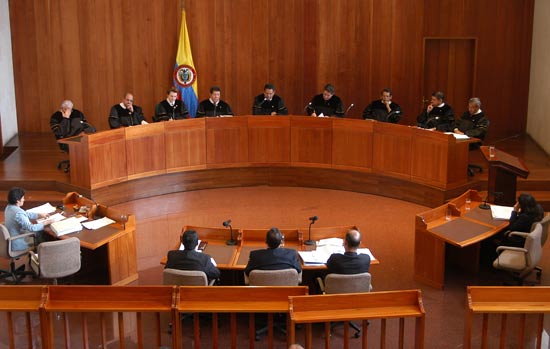
Mar 11, 2022 | News
Today, the Colombian Commission of Jurists (CCJ) and the International Commission of Jurists (ICJ) call upon the Government to respect the judicial independence of the Constitutional Court and take appropriate measures to guarantee the safety, security, and integrity of Constitutional Court’s justices from threats against them.
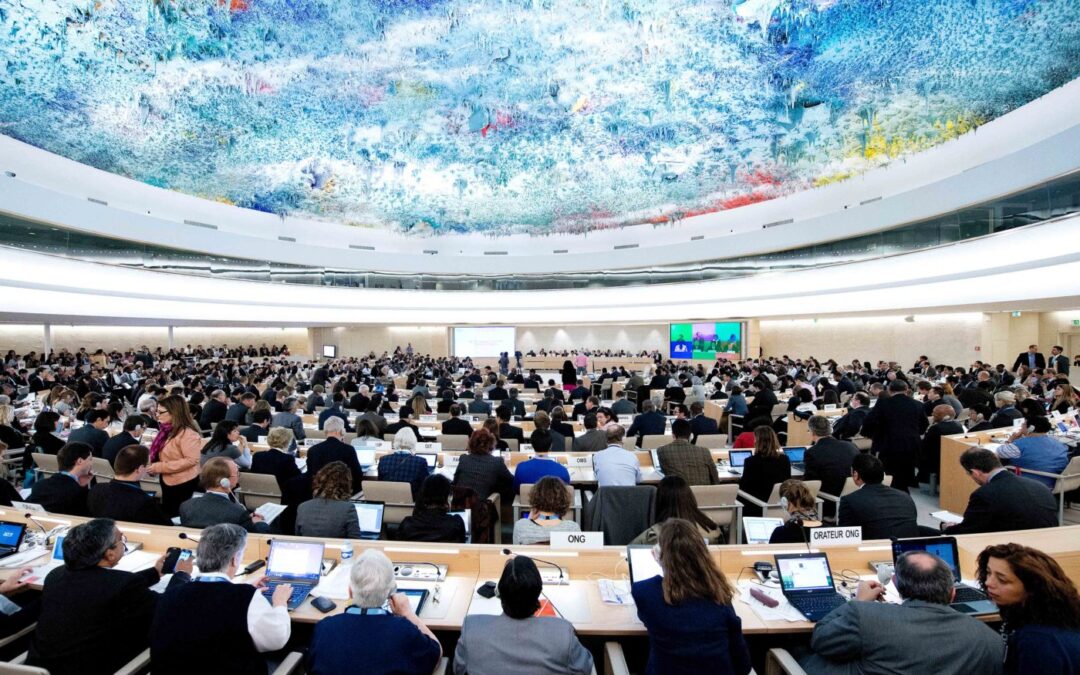
Sep 21, 2021 | Advocacy, Non-legal submissions
The ICJ expressed concern today at the use of abductions in national security cases in Turkey and the enduring impunity for enforced disappearances in certain Latin American countries, during the interactive dialogue with the UN Working Group on Enforced and Involuntary Disapparances at the UN Human Rights Council.
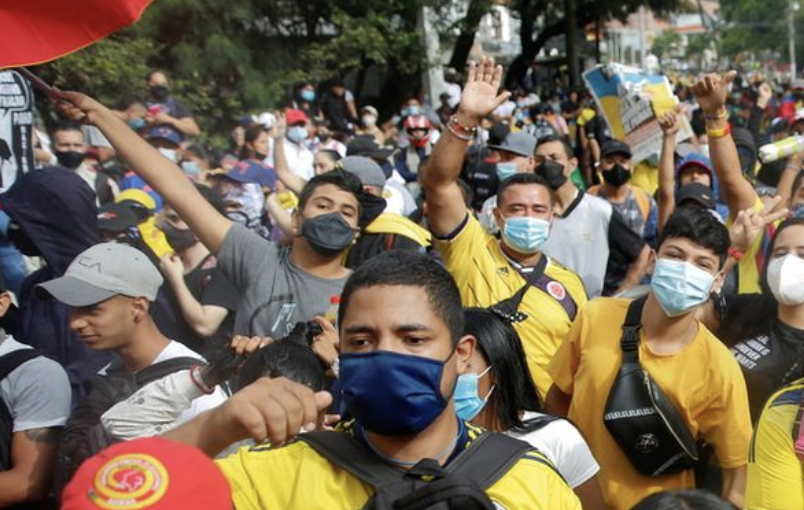
Jul 1, 2021 | Advocacy, Non-legal submissions
The ICJ and the Colombian Commission of Jurists today jointly addressed the UN Human Rights Council in the Interactive Dialogues on the Reports of the UN Special Rapporteur on extra-judicial, summary or arbitrary executions and the UN Special Rapporteur on the rights to freedom of peaceful assembly and of association.
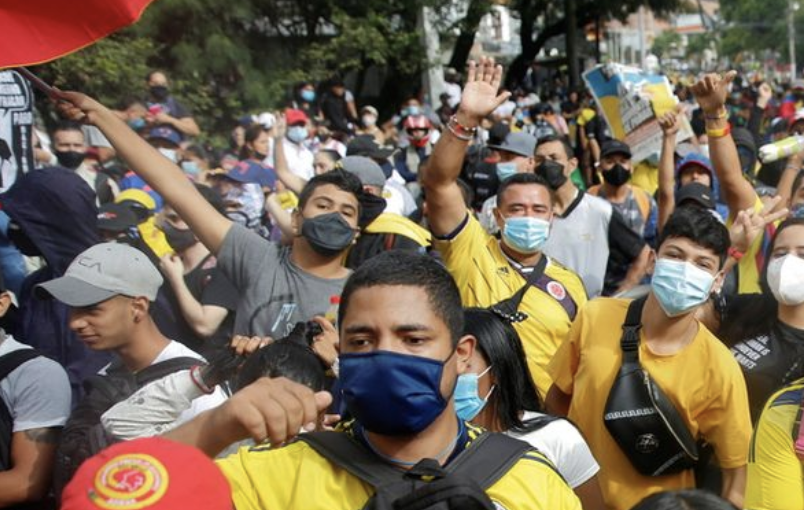
Jun 23, 2021 | Advocacy, Non-legal submissions
The ICJ joined over 300 civil society organisations in a statement to the UN Human Rights Council to express deep concern about the situation of human rights in Colombia during the presentation of the annual report of the UN High Commissioner for Human Rights.
The statement reads as follows:
“Thank you Madam President,
On behalf of the undersigned organisations, we thank the High Commissioner for her annual report, particularly on activities undertaken in Colombia. The situation in the country confirms the need for continued monitoring and provision of technical assistance by her Office
Throughout the eight weeks of mass protests that have spread to different cities throughout the country, we’ve seen killings, excessive use of force, acts amounting to torture and other ill-treatment, enforced disappearances, sexual violence, arbitrary detentions and attacks, including cyber-attacks against those exercising their right to protest, all of which constitute flagrant human rights violations. These violations are taking place in spite of a Supreme Court ruling ordering the security forces to refrain from acting violently and arbitrarily in a systemic manner during demonstrations, and calls by human rights mechanisms to cease these violations.
The protests are rooted in structural demands linked to the respect for human rights, and other concerns including poverty, inequality, growing social injustices, impunity, systemic racism and systematic violence against human rights defenders -including social, campesino, trade union and indigenous leaders and the press. They are also a result of the continued failure to fully implement the 2016 Peace Accord.
We urge the Council to call on Colombia to cease the use of violence and to respect the right to peaceful protest; to independently investigate human rights violations committed in this context; to accept the visit of the Special Procedures; and facilitate the building of social consensus around structural demands.
Finally, we ask the High Commissioner, through her Office in Colombia, to prepare a report on the human rights violations committed during the protests.
Thank you Madam President.”
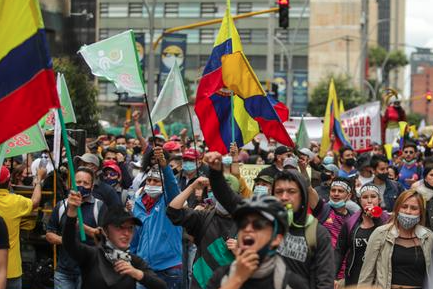
Jun 4, 2021 | News
Colombian authorities should immediately stop law enforcement officials from using excessive force to respond to protests and withdraw the military from law enforcement functions, said the ICJ today.
Over the course of ongoing protests, largely against economic and social conditions, multiple human rights and other civil society organizations have documented widespread human rights violations, including instances of torture and ill-treatment, sexual violence, extrajudicial killings, and enforced disappearances.
“The reports of violence and excessive and often unnecessary use of force by law enforcement officials are part of a wider failure of the authorities to adopt effective measures to protect and guarantee the right to life and the right to peaceful protest” said Carolina Villadiego, ICJ legal adviser for Latin America.
According to Indepaz, a local Non-Governmental Organization, as of 30 May 2021, at least 71 people had been killed, likely unlawfully, in the context of the protests. The situation is particularly dire in Cali where in just one day, 28 May 2021, 13 people were reportedly killed. In addition, it has been documented that firearms and lethal force have been deployed against protestors, including indigenous persons, by armed individuals in Cali. In at least one incident, multiple video recordings show police officials were present during the shootings and took no action to stop the shootings or apprehend the armed individuals.
Police and other law enforcement officials have the obligation to defend the rights of people, including their right to protest, and to protect them from violence by others. Colombian law enforcement officials have not only violated their obligation to avoid use of unnecessary or excessive use of force against people, but in Cali, they seem to have failed to prevent criminal violence by armed individuals as well.
“There must be a prompt, thorough and impartial investigation into these violations with a view to holding accountable those responsible”, said Carolina Villadiego.
The ICJ is also deeply concerned with militarization of the response to the protests. On 28 May 2021, President Duque issued Decree 575 of 2021 that authorizes the intervention of military forces in at least eight departments out of thirty two in the country, to assist in the lifting of any kind of roadblocks and to prevent the installation of new blockades by protesters. The Decree fails to consider any limitation of the use of force by military forces in line with international law standards such as the UN Basic Principles on the Use of Force by Law Enforcement.
Additionally, the sweeping and overbroad scope of the Decree to involve the military forces in what are inherently law enforcement functions does not consider that they are not trained or designed to protect civilians during protests or scenarios of public order disruption.
The ICJ urges the Colombian Government to fully respect the UN Basic Principles and other international standards on the use of force and the intervention of military forces to control protests and demonstrations. In this regard, the Government must fully comply with the September 2020 ruling on measures to guarantee peaceful protests issued by the Colombian Supreme Court.
In the ruling, the Supreme Court identified serious violations regarding the intervention of law enforcement officials, especially police officials, in protests and demonstrations. The Court identified systematic violence against demonstrators, the existence of stereotypes and prejudice against those who criticize the government’s policies, and a lack of mechanisms to hold the officials accountable.
Consequently, the Court ordered several measures to address this situation and guarantee the right to peaceful protest, including adopting and implementing a protocol to regulate the use of force during protests and manifestations, in accordance with international human rights standards.
The ICJ also calls on the Colombian Government to guarantee the right to peaceful protest. As the UN Human Right Committee has clearly affirmed, the right to peaceful protest may entail the disruption of vehicular or pedestrian movement, which “may be dispersed, as a rule, only if the disruption is “serious and sustained””.
While the vast majority of protestors have acted peacefully, there have been some instances where they have not. The ICJ calls on all persons to avoid violence during the protests and condemns the crimes committed against police officials, including the killing of at least two police officers, the serious injuries suffered by one police officer after being hit by a Molotov cocktail, and the sexual violence suffered by a police woman.
The ICJ deplores the particular use of some roadblocks that have affected the delivery of essential medical services, as well as the fires at the courthouse in Tuluá and other public buildings. Any individual engaging in criminal behaviour must be impartially investigated and, if found guilty in a fair trial, brought to account.
Finally, the ICJ also urges the National Government to fully cooperate with the mission of the Inter-American Commission on Human Rights (IACHR) to Colombia that will take place from 8 June to 10 June 2021. The Government should respect and ensure the IACHR’s independence and autonomy during the visit.
Contacts:
Carolina Villadiego Burbano, Latin American Legal and Policy Adviser, email: carolina.villadiego(a)icj.org
Rocío Quintero M, Latin American Legal Adviser, email: rocio.quintero(a)icj.org









